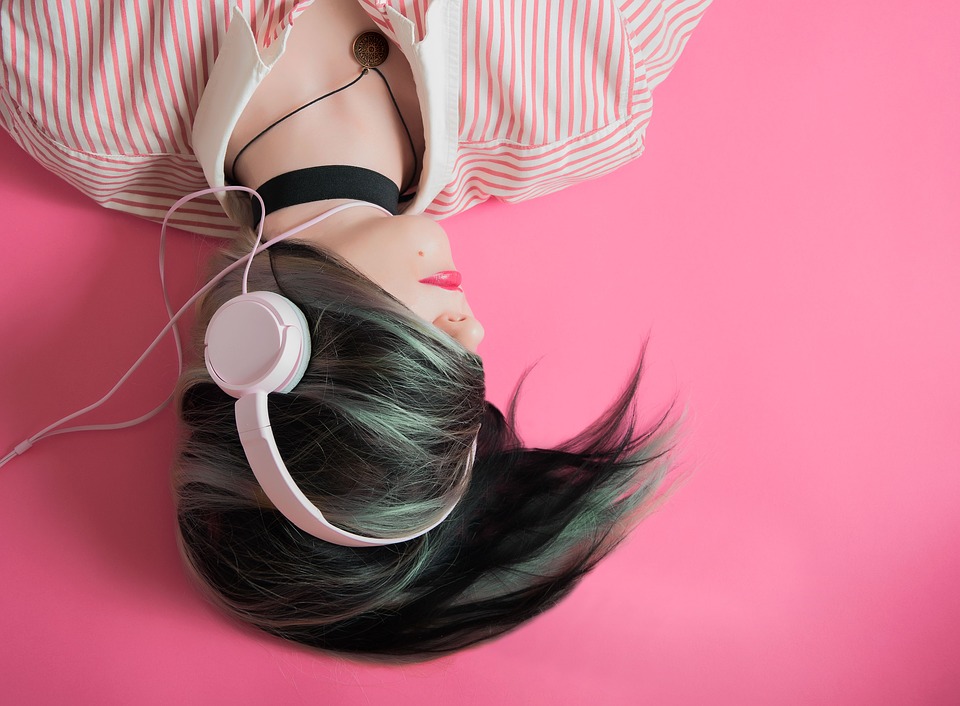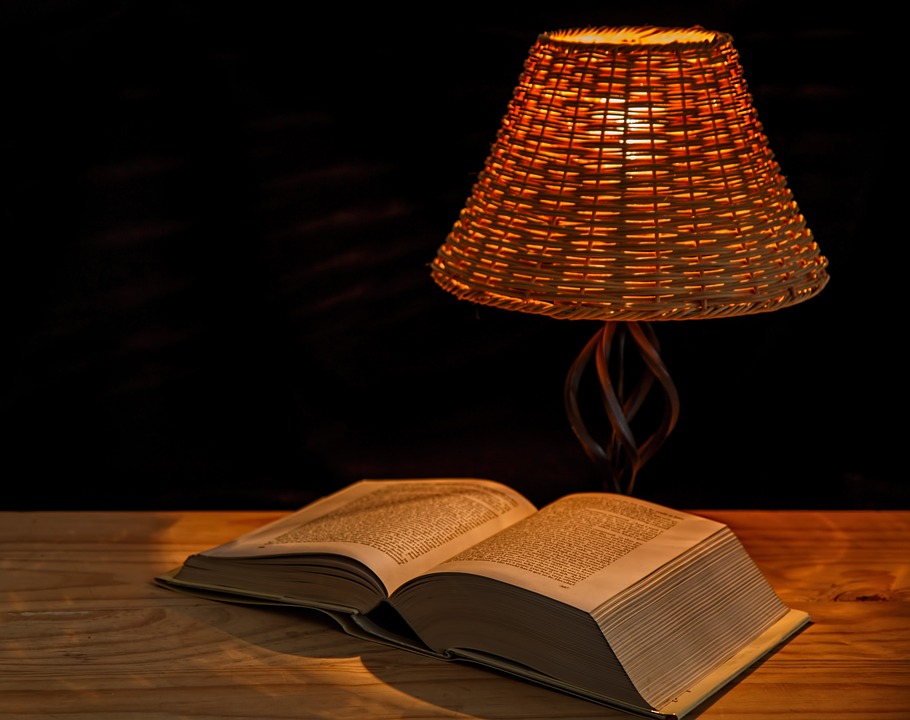This is Part 5 of my article series How I Overcame Insomnia in 10 Steps.
As I’ve been saying throughout this series of articles, there are lots of factors that affect how well we sleep. We’ve discussed mental health and triggers, and how the media we consume affects our state of mind.

One of the main reasons I struggle to sleep is that I find it difficult to switch my brain off at night. I’ve thought about this a lot. Is it because I have a naturally very active mind? Or have I trained my brain into being active by constantly reading and watching things that rile me up and make me think things over all the time? I think probably both of those things are true.
Overthinking
I do a lot of thinking! I think about everything. Sometimes that’s a really great thing. It’s enabled me to do well academically, and plays a big part in my ability to learn about my own behaviour and change my habits!
However it does also come with down sides. I worry about things I needn’t worry about. I overthink everything. I suffer with anxiety. And of course, I sometimes keep myself up at night with thoughts and worries running around my head.
But I have learned how my mind works, and I have now developed strategies to calm and relax my mind. The key is to try out a few different techniques, as some people respond better to some methods than others. Find what works for you.
Personally, I prefer quiet audiobooks, podcasts and sleep stories. I find spoken word more relaxing than music. It works for me, because it guides my busy mind into thinking about something, but in a directed, limited way. You might agree with me, or you might be different.
Many people like to listen to music as they fall asleep – I find music actually keeps me awake. So it’s all about doing a bit of trial and error to find out what works best for you.

Headphones
Now, most of these suggestions centre around listening to something when you go to bed. So before I get onto the list of suggestions, I need to take a minute to talk about headphones.
You’ll need some decent headphones that are comfortable enough to sleep in. I started using my normal earbuds but quickly found that constantly having something in my ears at night was causing my pain and itchiness that could have led to infections.
So I investigated some other types of headphones and came across this brilliant bluetooth headphone sleep mask. As with all bluetooth headphones and speakers, the controls take a little bit of getting used to, but I love mine now and have recommended it to everyone I know!
These are readily and cheaply available on Amazon, along with some other types of wireless over-ear headphones such as in elasticated headbands or even beanie hats! I wholeheartedly recommend the sleep mask personally as it also has the effect of blocking out light if your room is not completely dark.
Here are some of the bluetooth headphones I’ve tried:
If you don’t want to use headphones, you can just use your phone speaker, as long as you don’t share a room with anyone else. But I find that headphones provide better sound quality and help to reduce background noise as well.
With the audio practicalities out of the way, let’s move onto the suggestions:
Relaxing Music
If you’ve been in a spa or had a massage in a treatment room you’ll know how much the music adds to the experience. Sometimes I like to pretend I’m at the spa and deck out my bathroom with aromatherapy candles and dim the lights and have a hot bath listening to spa music.

There are Spa Music playlists on Spotify, although if you’re a free member you run the risk of an awful advert blaring at you every half an hour. Amazon Music and iTunes are another way to play your relaxing music. And as mentioned above, Calm app and Headspace both feature relaxing music tracks in their libraries.
You can also find long music tracks on YouTube for spa music. These tend to fall into categories such as relaxing piano music, panpipe music, spa music, binaural music, chillout music, and orchestral classical music (amongst others).
Think about what type of music you find most relaxing. Experiment with a few different genres until you find one you really like. And it really is personal preference, some people love to have a regular beat to relax, while others can’t have a beat at all.
And it’s also worth bearing in mind that even if music relaxes you, it may not help you fall asleep. I found early on that although I love music and especially relaxing spa music, my mind wants to follow the melody and it stops me from drifting off. If this is the case for you, try spoken word or ambient sounds instead.
Spoken Word
Like music with all its various genres, spoken word is another huge category. Not least because there are so many subjects under the sun from fiction to non-fiction, poetry, philosophy and religious texts. But also because there are a multitude of different formats which are outlined below.
Audiobooks
The best audiobook app hands down is Audible. If you’ve not come across Audible, it’s Amazon’s audiobook app. You can have a free trial where you get two free books to start with, and then if you sign up it’s £7.99 a month, with a free book every month. Once a year on your birthday you get 2 extra free books. So if you listen to a lot of audiobooks like I do, £7.99 per book is pretty reasonable. You can of course buy and redeem more credits if you want to, but to be honest the free one a month has stood me in good stead for about three years so far! Try an Audible free trial.

You can listen to classic literature such as Austen or Dickens, Lord of the Rings, Harry Potter, modern literature, film adaptations. There is also a huge wealth of non-fiction books in such diverse categories as Computing, Self-Help, History, Spirituality, or Gardening. There are also affirmations and hypnotherapy tracks on Audible too.
There are free audiobook apps too, such as LibriVox but you will find their catalogues are limited compared to Audible. LibriVox in particular specialises in public domain works (ie classic texts whose copyright has expired). I actually have found some really great texts on LibriVox including all the old Law of Attraction stuff such as Think and Grow Rich, The Game of Life and How to Play It, etc.
Before I discovered sleep stories (more on this further down), I would listen to epic fantasy books, particularly Tolkien, such as the Hobbit and the Lord of the Rings, and my other favourite author Neil Gaiman. These kinds of books whisked me away to another world, where whatever it is that bothers me, doesn’t exist, and the characters’ quests are far more important and world changing than anything I could be worried about.
Podcasts
Another great spoken word format is the podcast, which has rapidly grown in popularity in the last few years. Like audiobooks, there are podcasts on every conceivable subject! Find yourself a good podcast player (such as Player FM or PocketCasts) and start searching for your favourite subjects.
I particularly like podcasts on history, spirituality, self help and motivation during the day. But for night time it’s worth bearing in mind how you feel about the hosts’ and guests’ voices. Sometimes, with the best will in the world, the most interesting podcasts are not always great for falling asleep to!
Experiment and see what you can find, I found that while I enjoy learning about politics, it’s not the best choice for my bedtime listening as it tends to get me riled up (either angry or motivated). But the Roman conquest of Britain works well – I find ancient history fascinating, but not emotionally rousing. I can quite easily drift off listening to someone quietly reading Tacitus…!
This is all down to personal preference, so it’s important to try several things to find out what works best for you.
Sleep Stories
A major turning point for me was discovering the Calm app and its wonderful sleep stories. I’ve done a whole article on sleep apps – but I will mention Calm here since it has sections for stories, calming music, ambient sounds and guided meditation tracks. And all of that is completely free, with no adverts. Download it below and try it out for yourself.
The sleep stories are specifically designed to lull you to sleep. They feature calming scenarios, particularly themed around travelling – such as walks in the countryside, train rides, boat rides, and descriptive scenes of travelling to other countries. They are read gently and calmly by some really lovely relaxing voices. My favourite voices to listen to on the Calm app are Alan Sklar and Chiké Okonkwo.
I find what works so well about these stories, is the way they allow my mind to continue thinking and wandering as it likes to do, but in a more structured and limited way. The stories are so descriptive you cannot help but imagine and experience the scenes. Each story is about half an hour long, and is cleverly written to gradually relax you and calm your mind until you drop off.
Calm App:
- https://apps.apple.com/us/app/calm/id571800810
- https://play.google.com/store/apps/details?id=com.calm.android
Meditation
Personally, I find meditation to be very difficult. I have a busy, chattering mind, and I live in a noisy city that doesn’t sleep, and I have demanding kids. I know, I know, all the more reason to practise, right? But I do really struggle, especially at night.
However, I have used guided meditiation tracks on occasion, and I know that some people really enjoy these. The Calm app above features meditation tracks in addition to sleep stories, but there are two further apps I’d recommend for meditation:
Headspace App:
This app is really popular for meditation because it makes meditation so accessible for everyone. There are long and short meditations, and tracks for kids as well. This is the one to go for if you are a complete beginner and feel a bit intimidated by the idea of meditation.
- https://apps.apple.com/gb/app/headspace-meditation-sleep/id493145008
- https://play.google.com/store/apps/details?id=com.getsomeheadspace.android
Insight Timer App:
This is one I’ve had recommended to me by numerous friends, mainly because it covers all the various different styles of meditation and a huge library of meditations for all experience levels. This is the one to get if you have meditated before or have an understanding of mindfulness, yoga, buddhism or other (particularly eastern) spiritual practices.
- https://apps.apple.com/gb/app/insight-timer-meditation-app/id337472899
- https://play.google.com/store/apps/details?id=com.spotlightsix.zentimerlite2
If you’re interested in sleep apps, take a look at my article on the best sleep apps for 2021.
Ambient Sounds
If you find spoken word and music too distracting to listen to while you try to fall asleep, you could try ambient sounds.
By ambient sounds, I mean sounds you might hear in the background of certain scenes or situations. Some common examples are:
- the sea (generally the tide, but sometimes also featuring sea birds, or the infamous whale song!)
- rain (from light drizzle to thunderstorms)
- crackling fire
- forest sounds (these can be european or tropical, depending on preference)
- womb heartbeat
- white noise (the static sound of a radio not tuned into a station)
- ASMR (see below)
The usual theme is sounds from nature, and our preferences in this genre tend to tap into our childhood memories. There is something calming and relaxing about the sound of rain against the window, a fire crackling in the fireplace, the tide rushing into the shore.

These kinds sounds are also reminiscent of the slow, rhythmic sounds of the mother’s heartbeat in the womb and some psychologists believe we may find these sounds relaxing as they subconsciously remind us of our time in utero.
Long play audio tracks are available for all these ambient sounds and more on YouTube and can be downloaded via iTunes and Amazon Music too.
Sometimes I actually really love just listening to the sound of rain tapping against a window pane. It takes me right back to the hours I passed drawing pictures in our glass conservatory as a child, rain pattering down as I scribbled away for hours.
Try out some ambient sounds, especially if you’re finding music or spoken word recordings too distracting for sleep.
ASMR
Sooooo ambient sounds kind of bring me onto ASMR. This acronym apparently means “autonomous sensory meridian response”. Who knew?
I’ll be honest, this does nothing for me, but some people apparently find it very relaxing, so it’s definitely worth mentioning.
The basic premise is that for some people, the sound of people whispering, or scratching something with a particular texture, or tapping certain objects can be very relaxing. So I will include this in ambient sounds, as the sounds are generally the kinds of sounds you might hear at home, or in an office, or another particular setting.
Summary
- Our minds like to think and contemplate
- At night we need to quiet that inner voice
- Audio recordings can help to guide our minds into calmer, quieter activities
- Music, spoken word, meditation and ambient sounds can all help
- Try getting a comfortable bluetooth headband or sleep mask
- Experiment with a variety of genres until you find what works for you

[…] Quieting Your Mind at NightOne of the main reasons I struggle to sleep is that I find it difficult to switch my brain off at […]
[…] talked about audiobooks and other listening material in my article Quieting Your Mind At Night. I am a firm believer that just doing this one thing makes a huge difference. If you do nothing […]